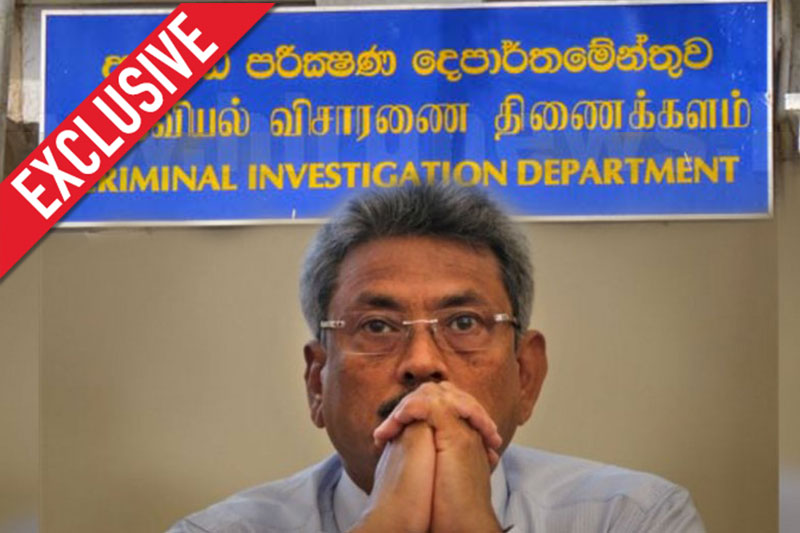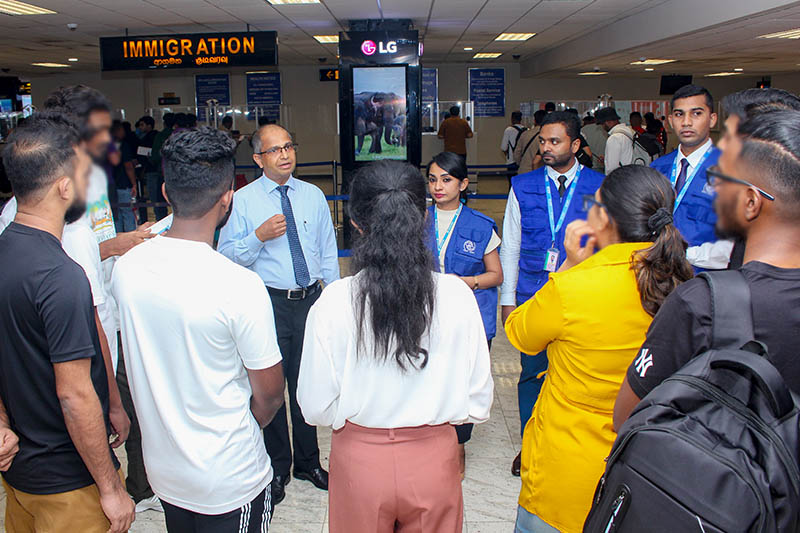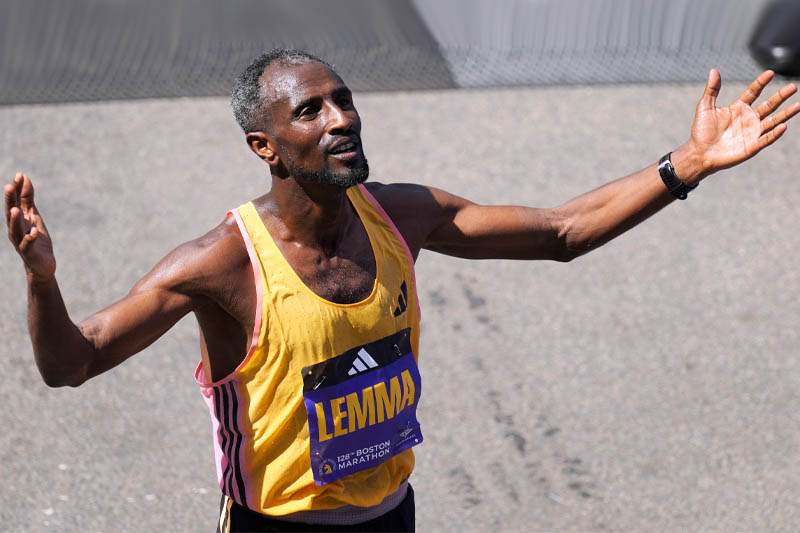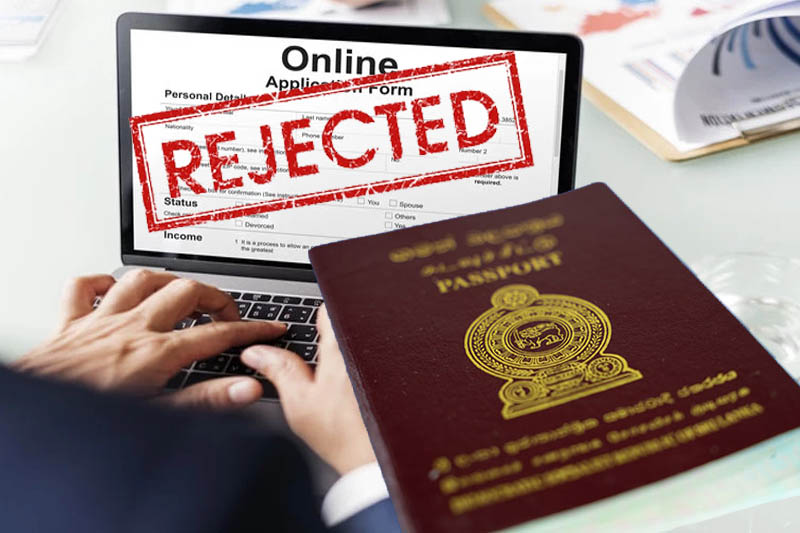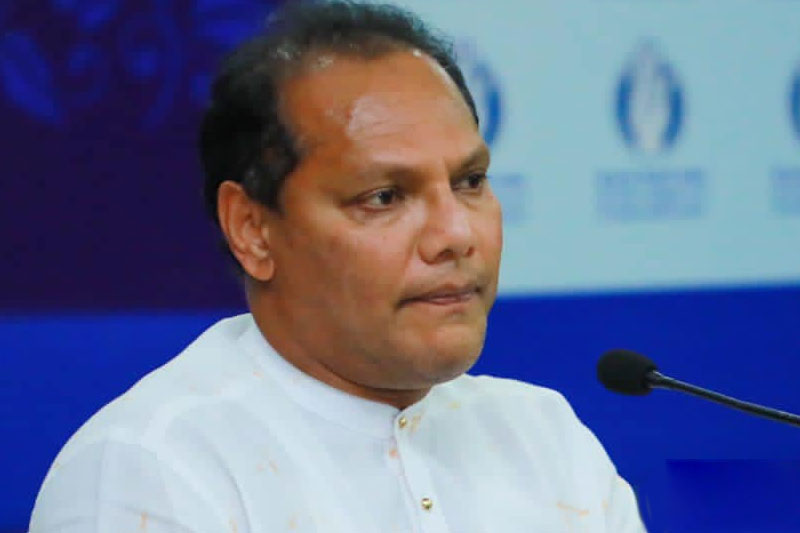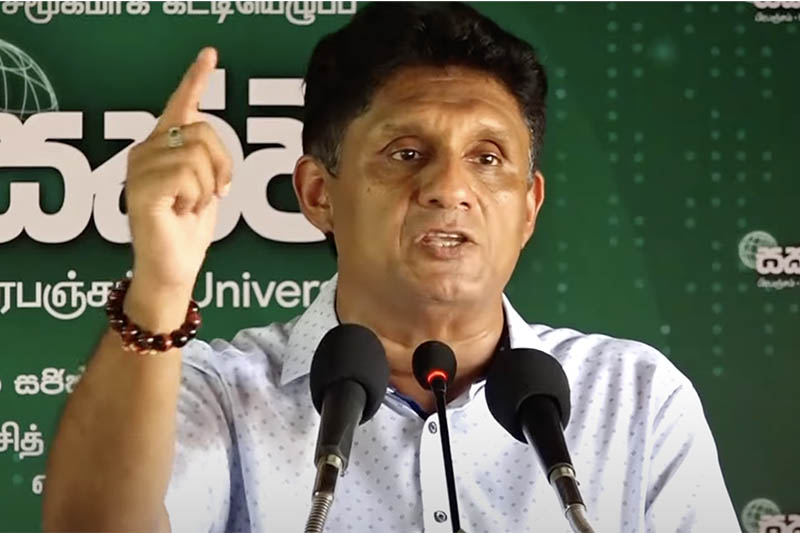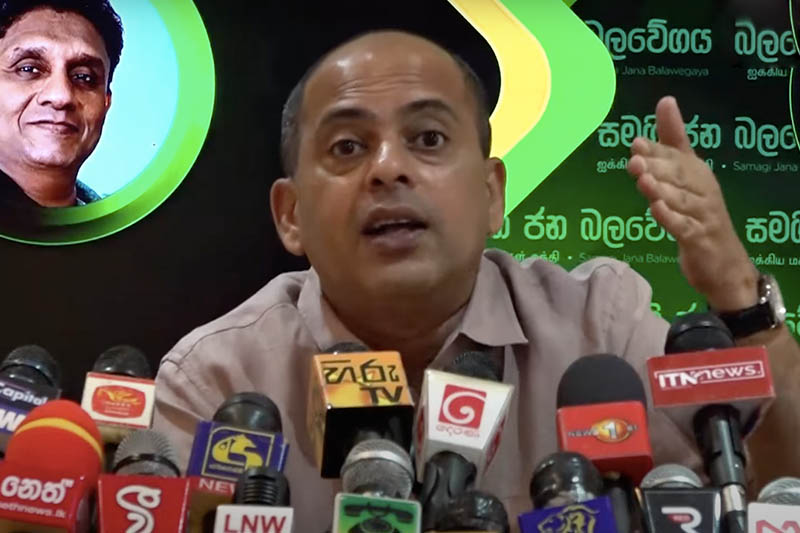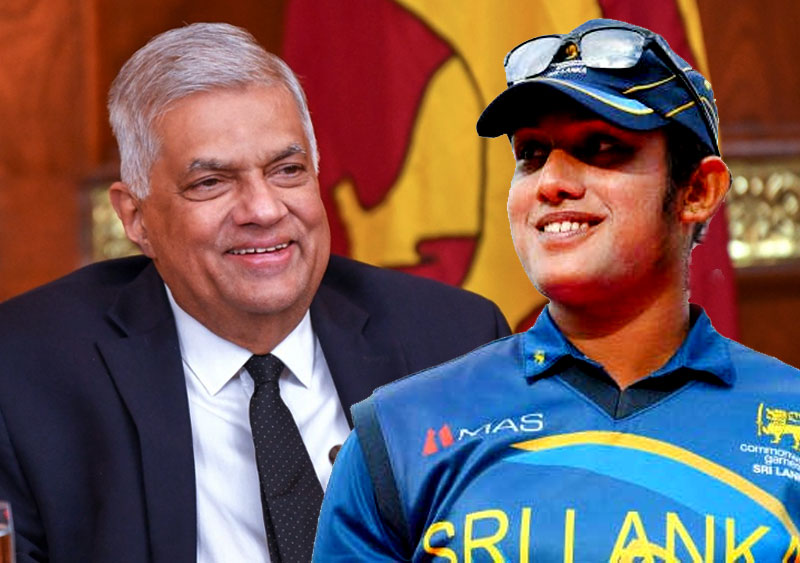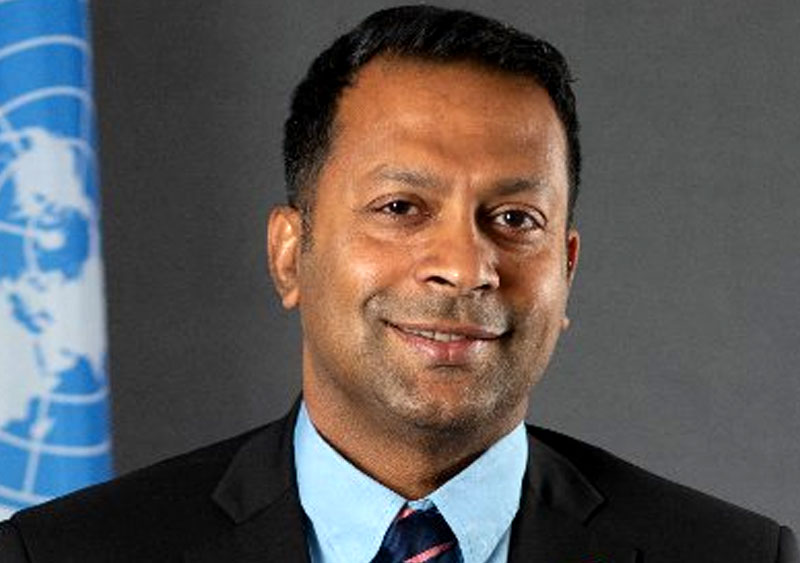The Criminal Investigations Department (CID) has commenced an investigation in to the alleged irregularities in the issuing of a new Sri Lankan passport to former Defence Secretary and “Pohottuwa” party’s presidential hopeful, Gotabhaya Rajapaksa.
Rajapaksa has told the media that the new passport does not have the dual citizen stamp, which is indicative of the fact that he is now a Sri Lankan citizen.
Rajapaksa’s renunciation of the US citizenship and his re-application for Sri Lankan citizenship are two closely watched issues of the general public. However, Rajapaksa has yet failed to provide a solid response to any of these issues.
Meanwhile, two civil society activists have lodged complaints with the Acting Inspector General of Police (IGP) to investigate into the allegations of the irregularities in issuing a passport to Rajapaksa.
The complaints were lodged by Professor Chandragupta Thenuwara and Gamini Viyangoda calling on the Acting IGP to probe the allegations of “possible criminal activity” by Rajapaksa in obtaining the passport, declaration of dual citizenship and the disappearance of government records pertaining to these allegations.
Puravesi Balaya Convener, Viyangoda in his complaint has noted that Rajapaksa has publicly declared that he intends to contest the Presidential Election. “As you are aware all criminal proceedings against a person will cease upon their being elected as President,” he has stated.
Viyangoda has also called on the Acting IGP to investigate saying “it is of Paramount importance to Sri Lanka’s National Security and system of Justice.”
According to Viyangoda, the Police should investigate whether criminal offences are disclosed by this information and whether Rajapaksa did indeed legally obtain dual citizenship in Sri Lanka after renouncing his allegiance to the country of his birth and pledging fealty to the United States of America in 2003.
The complaint lodged by Prof. Thenuwara, which does not name Rajapaksa, has noted that the “individual concerned” has had criminal proceedings instituted against him by both the Commission to Investigate Allegations of Bribery or Corruption (CIABOC) and the Attorney General for the alleged misappropriation of public funds and corruption.
Meanwhile, Internal and Home Affairs Minister Vajira Abeywardena has told the media that Rajapaksa had not officially informed his Ministry about renouncing American citizenship.
The issue of granting dual citizenship, its renunciation and re-application for Sri Lankan citizenship fall under the purview of Abeywardena.
Gota’s passport saga
The issue of Rajapaksa’s dual citizenship has taken a new twist with revelations that he had obtained his new Sri Lankan passport sans the “dual citizen” stamp without appearing in person and by applying after hours to the Immigration and Emigration Department.
It has also been revealed that Rajapaksa has not made an application under the Citizenship Act and that his new passport has been issued under a new National ID that is unconnected to border control records.
The Leader learns that Rajapaksa’s passport application was received and processed by the Immigration and Emigration Department on an urgent basis on May 7, this year after 3.00 p.m., which is the cut-off time for new applications.
Also, Rajapaksa had not appeared at the Immigration Department to be finger-printed, and the passport was issued in a matter of hours under a new National ID card number that is not connected to Rajapaksa’s previous NIC or border control records.
Rajapaksa has reportedly obtained the new passport from the Immigration and Emigration Department in May without the dual-citizen stamp.
According to Rajapaksa, this new Sri Lankan passport was proof that he was no longer a dual citizen under Sri Lankan law.
According to immigration officials, persons with dual citizen status are required to make a formal application under the Citizenship Act if they wish to regain regular Sri Lankan citizenship. However, Rajapaksa it is learnt had not followed this regular process, but had obtained a passport which did not indicate his dual citizenship status.
It is also learnt that the use of a new National ID card number for Rajapaksa when obtaining the new passport had prevented the immigration computer systems from automatically noting that he was on record as a dual citizen.
Minister's powers
An immigration official has noted that the dual citizenship is a ‘status’ granted by the Sri Lankan government to former Sri Lankan citizens allowing them to exercise all the rights of a Sri Lankan citizen. Hence, granting of a dual citizenship is most often a political decision with the Minister in-charge holding unquestioned authority to approve, deny or revoke dual citizenship as he decides is in the national interest.
According to Section 19 of the Citizenship Act, the Minister may only grant dual citizenship “if he is satisfied” that doing so “would, in all the circumstances of the case, be in the best interests of Sri Lanka.”
Section 19 (7) states that “the Minister may, at any time, revoke” a declaration of dual citizenship status if a dual citizen “has so conducted himself that his continuance as a citizen of Sri Lanka will not be of benefit to Sri Lanka.”
However, in the event a dual citizen wishes to become an ordinary Sri Lankan citizen and if the status has not been revoked, they must then apply under the Citizenship Act for a declaration that they are again full Sri Lankan citizens.
Once again, this decision is also delegated to the Minister in-charge of citizenship matters.
Gota’s dual citizenship
According to an affidavit filed by Rajapaksa before Sri Lanka's Supreme Court, he had returned to Sri Lanka in 2005 to assist with his brothers presidential campaign.
When he arrived in Sri Lanka in 2005, he was an American citizen and not a Sri Lankan citizen. Furthermore, immigration records have noted that he had arrived in Sri Lanka on his American passport with an on-arrival tourist visa in order to campaign for his brother - then Prime Minister Mahinda Rajapaksa.
He had applied for dual citizenship on November 18, 2005, which is interestingly, the day his brother was sworn in as the President of Sri Lanka.
Missing file
It is now learnt that files on Rajapaksa’s dual citizenship are not at the Immigration and Emigration Department.
The only record available is one that indicates he had applied for dual citizenship on November 18, 2005.
However, records show that his application was approved by the Minister on the next working day, Monday, November 21, 2005. Interestingly, the approval was granted by the ‘Minister’ although there was no Minister appointed at that time.
Rajapaksa’s application was given top priority although there was a large backlog of applications over several months. The computer system at the Immigration and Emigration Department has noted that while the dual citizenship was granted in November 2005, the data pertaining to Rajapaksa was only entered into the system on January 13, 2014.
When inquiries were made to observe the original documents, it had been revealed that there are no copies of the application, receipt of payment, or the dual citizenship certificate granted to Rajapaksa in the Department file.
Also, dual citizens are usually required to present their dual citizenship certificate when obtaining a new passport. However, there are no records of Rajapaksa presenting his dual citizenship certificate when obtaining the new passport.

